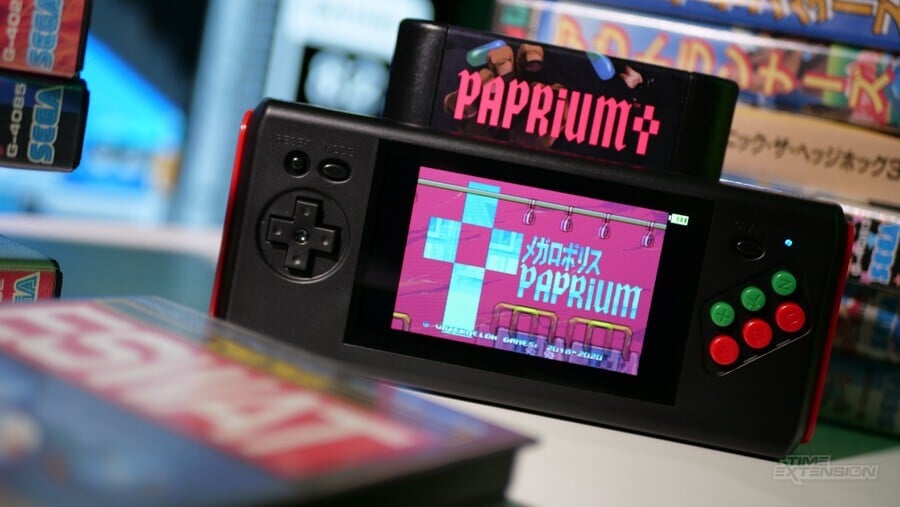
Back in 1995, Sega released the Nomad, a portable Genesis / Mega Drive which, for many fans, felt like the stuff of a madman's dreams. It offered the ability to play your 16-bit library on the move, as well as connect up to your TV for more traditional play. It was like the Nintendo Switch 20 years ahead of its time – and it was also something of a commercial dud, sadly.
Fast forward to the present day, and it seems that the world of gaming still has a soft spot for the notion of playing Mega Drive titles on the move. We've just had the announcement that Hyperkin is launching the Mega 95 soon, a handheld Mega Drive clone which comes with its own Switch-style dock, but this is far from the first product of its kind; back in 2019, Japanese company Columbus Circle released the 16Bit Pocket MD, a highly portable Mega Drive clone that accepts original carts and offers TV-out capability. We thought it was worth a look for its low price point, and the company iterated upon the concept with the 16Bit Pocket MD Plus, which was released a few years later.
Now, Columbus Circle is back with the rather clumsily-named IPS 16Bit Pocket MD HD, which retails for around $150. It's very much an evolution of the original Pocket MD, with a larger screen, rechargeable battery (an off-the-shelf, 2000mAh 18650 type, rather than a bespoke cell), HDMI-out at 720p resolution and the ability to connect up two controllers for the authentic home console experience. On paper, it sounds like a dream come true, but sadly, the reality is somewhat less enticing.
First things first, the IPS 16Bit Pocket MD HD feels a little cheap, which is something that could be said of the original 16Bit Pocket MD – but that cost significantly less. The rolling D-pad has been replaced with a Nintendo-style 'cross' pad, which we were initially sceptical about. The good news is that the revised D-pad is decent, although the six face buttons are a little on the small side and feel somewhat spongey.
Elsewhere, the unit doesn't exactly exude a premium feel; the volume dial is tricky to manipulate in a hurry, while the various switches (we'll get onto their functions shortly) also give off a low-rent vibe. When carts are inserted, they wobble a little too much for our liking (although we have to admit, we've not yet managed to make a game crash with our exaggerated arm movements). The two bundled controllers – for use when you've connected the IPS 16Bit Pocket MD HD to your TV – look horrendous, with wobbly face buttons and a cheap, lightweight feel. The saving grace is that the rolling D-pad on the controller is good, and if you can't get along with the pads, you can always use your original versions, as the connection is the standard 9-pin socket.
The packaging of the IPS 16Bit Pocket MD HD proudly proclaims that its screen uses IPS LCD technology, and, given how surprised we were at the quality of the display on the original 16Bit Pocket MD, we had very high hopes. Sadly, the screen on the 16Bit Pocket MD HD is borderline terrible. It's lacking in brightness and has dull colours and contrast. Viewing angles are reasonably solid, but that's about the only good thing you can say.

Bizarrely, there's a switch to toggle between 16:9 and 4:3 aspect ratios, which is totally pointless as no Mega Drive / Genesis games run in widescreen. Unless you're an oddball who likes to stretch their games to fill the whole of the display, we're not sure why you'd ever use it. We can only assume that Columbus Circle couldn't get a 4:3 LCD panel, so it decided that a more readily available 16:9 one would do. Also, despite looking for the option, we couldn't find any way of turning off the on-screen battery level indicator, which becomes quite annoying very quickly.
When connected to a TV via HDMI, things get a little better. The image quality isn't pin-sharp, so don't got expecting the same image quality you'd see from the Mega Drive Mini, Analogue Mega Sg or Polymega, but it's good enough for casual play, and the colours look better than they do on the IPS 16Bit Pocket MD HD's built-in screen.
So, what's emulation performance like? We tested a bunch of games, and it would seem that the internal hardware hasn't changed all that much since the original 16Bit Pocket MD. The same issues remain – games that are region-locked to PAL refuse to load. We tried Alien Soldier and Soleil, and both displayed the usual region-specific error message. There's a switch on the bottom of the device which allows you to toggle between 'Japanese' and 'Overseas' games, but, in this case, the latter only refers to North American titles. Thankfully, the vast majority of Genesis / Mega Drive games don't have region locks, so you can still enjoy a big chunk of the console's international library on this device.

There are some titles which refuse to load, regardless of their region. Virtua Racing is one such example; it uses the SVP chip and wouldn't load on the original 16Bit Pocket MD, either. You can't use Everdrive flash carts or the Terraonion Mega SD, either. However, we were shocked to discover that Paprium loads on the IPS 16Bit Pocket MD HD, although it seems to have a lot more slowdown than when running on original, non-clone consoles.
Then, there are the various issues which present themselves during gameplay. For the most part, games run fine – certainly well enough for you to play and enjoy them – but there are some egregious problems which cannot be ignored. For example, in Dick Tracy, when you get hit by an enemy, Dick completely vanishes for a second or two. When played on original hardware, Dick's sprite flashes rapidly to denote a brief period of invulnerability, making him appear transparent. On the IPS 16Bit Pocket MD HD, it would seem that the emulation isn't accurate enough to display this visual trick (we initially assumed it was an issue with the refresh rate of the IPS 16Bit Pocket MD HD's screen, but Dick vanishes when the device is connected to the TV via HDMI, too).

Given that a Sega Nomad can cost you several hundred dollars today and will almost certainly need some kind of maintenance work given its advanced years, you could argue that the $150 we paid for the IPS 16Bit Pocket MD HD was a sound investment. The issue is that the playing field has come on quite some way since 1995, and there are an embarrassment of options out there if you want to play Genesis games on the move. Emulation handhelds like the ones made by Anbernic and Retroid deliver accurate performance and better screens, plus the ability to emulate other systems – while the (admittedly more expensive) Analogue Pocket promises an FPGA level of faithfulness.
If you're dead set on being able to use your original cartridges, then you could argue that this is a decent purchase – but even then, if you can live without the 720p TV-out, we'd advise you opt for the older 16Bit Pocket MD model (or the Plus variant), as the display is better than the one used in the IPS 16Bit Pocket MD HD.
In summary, this is a product that's best left on the shelf; if you're really interested in what it can offer, it might be advisable to wait for the aforementioned Hyperkin Mega 95, which should hopefully be a lot better.






Comments 2
@Damo Not a chance it includes cheat (such as Game Genie) support.
The community has surely created codes for most region-locked games by now, and if somehow there isn't one, it's usually pretty quick and easy to crack region-locking code on the Genesis.
If you had live as long as I am then you know there's more than just one Sega Genesis portable handheld out there whether official or clone.
16-Bit Pocket MD Handheld
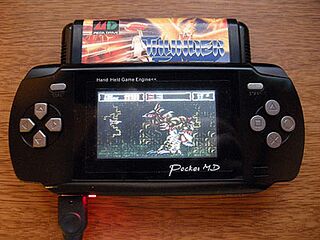
16-Bit Pocket MD AV Handheld

16-Bit Pocket MD HD Handheld
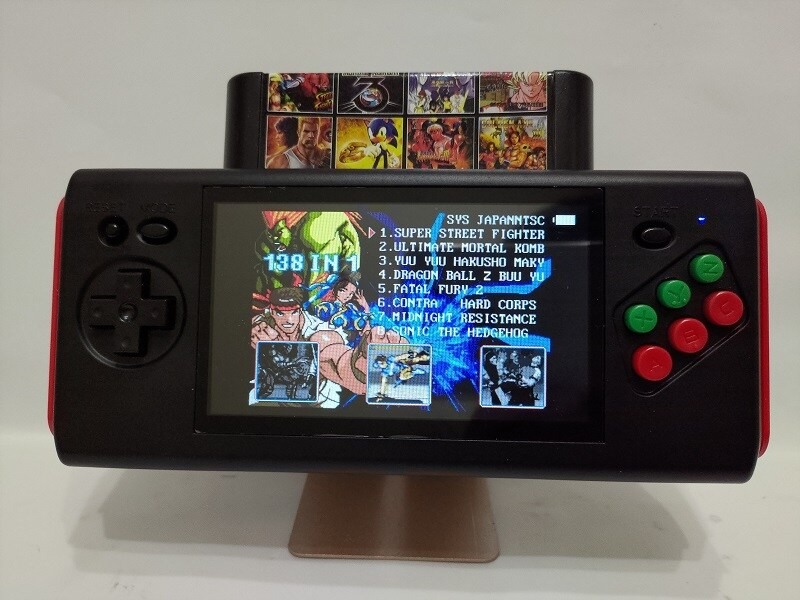
AtGames GenMobile

Retro-Bit RetroGen Adapter for Retro Duo Portable
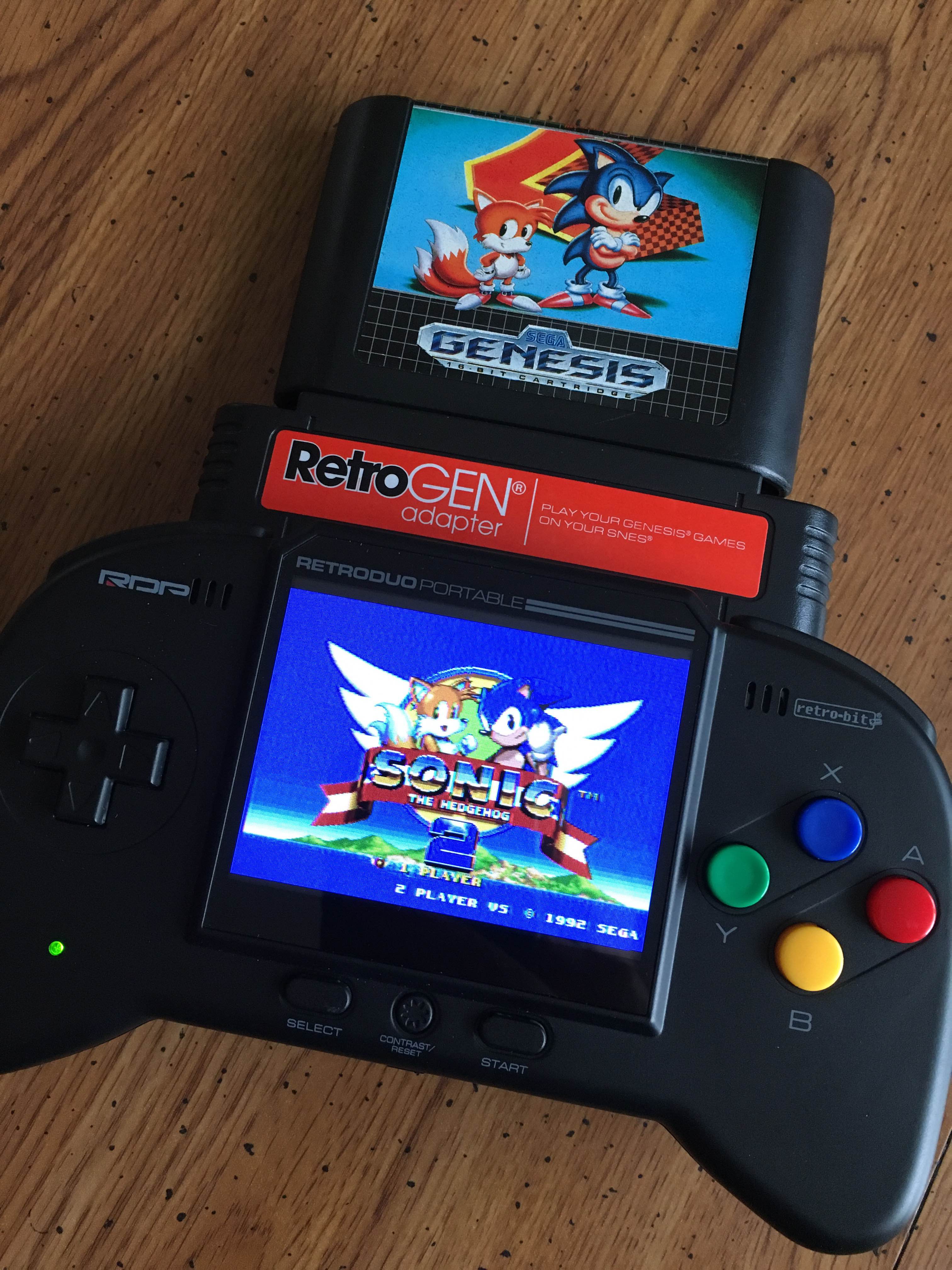
AtGames Sega Genesis Portable: 6-Button Edition
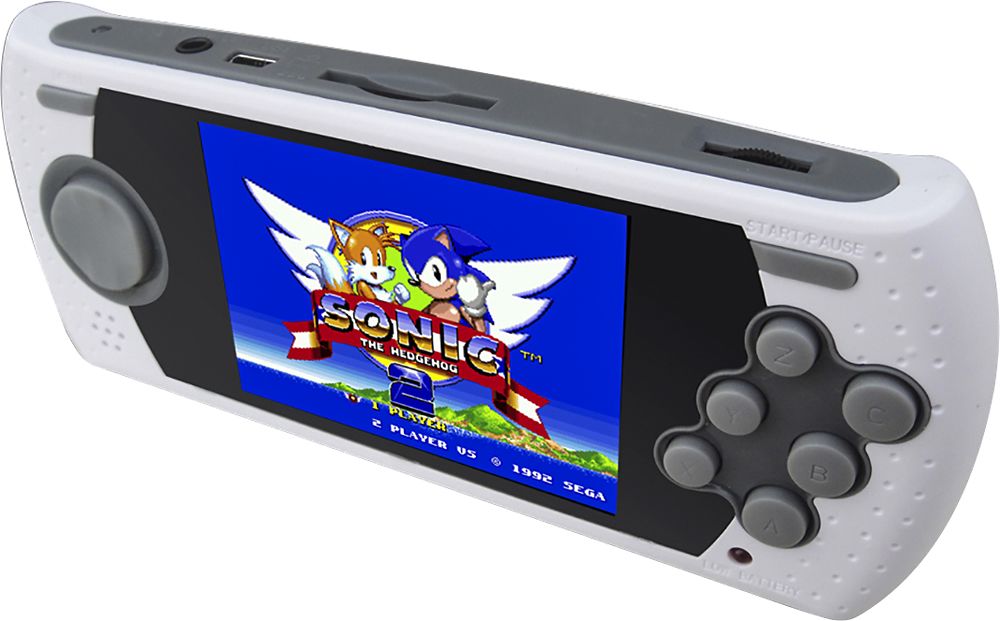
AtGames Sega Genesis Portable: 3-Button Edition

Retro-Bit RetroGen Handheld
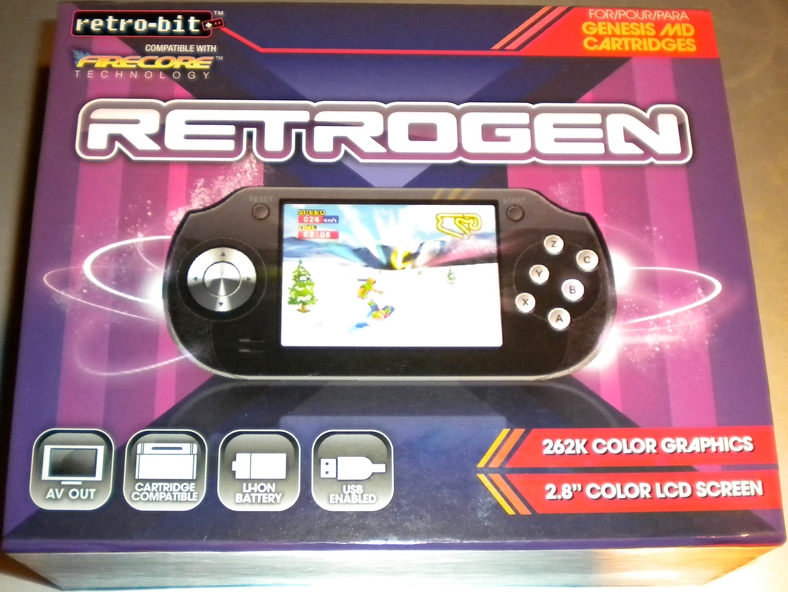
Hyperkin Mega 95
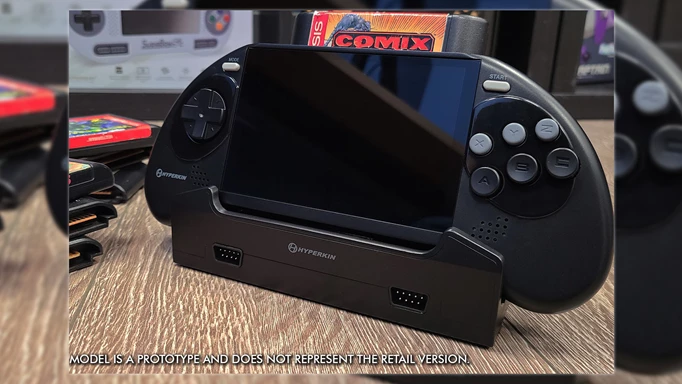
Pocket Game MD

Sega Genesis Nomad
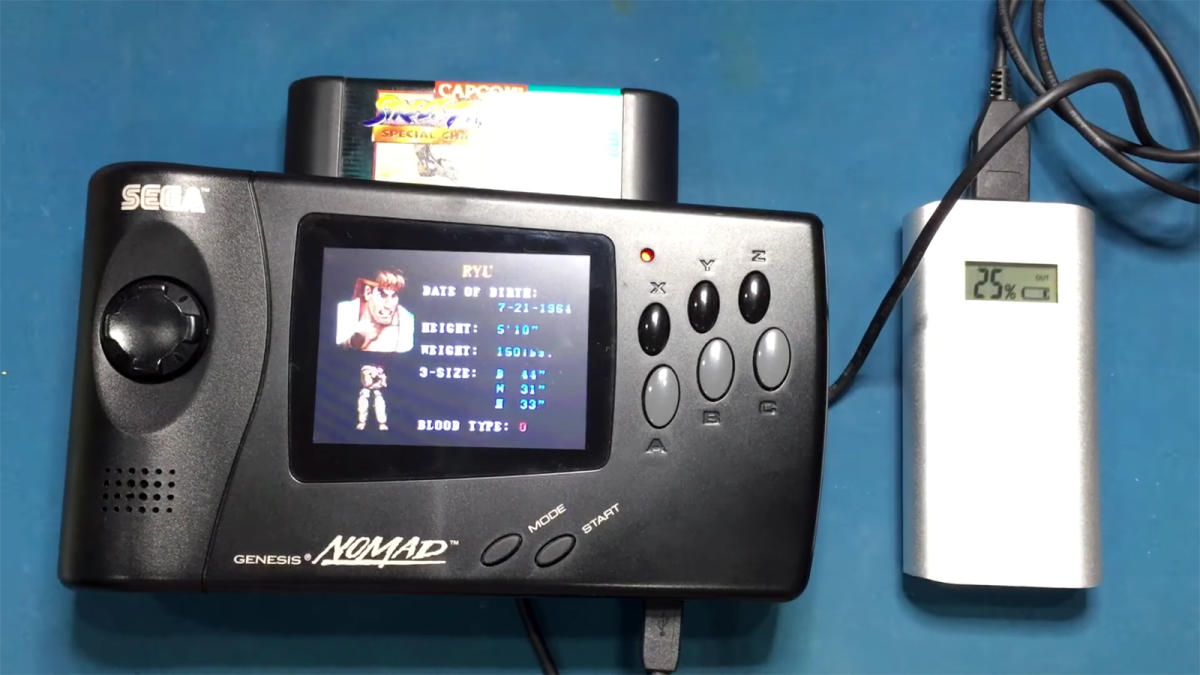
Sega MegaJet (the screenless handheld)

Leave A Comment
Hold on there, you need to login to post a comment...